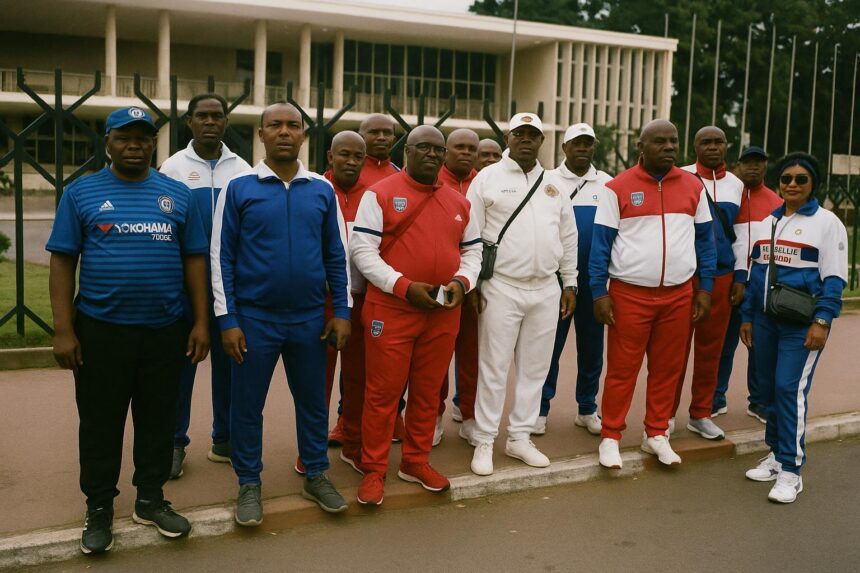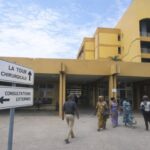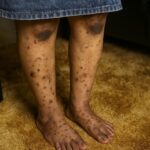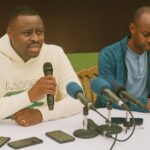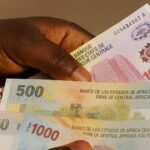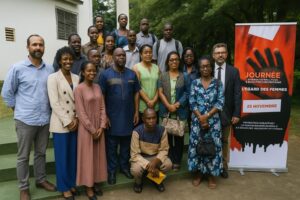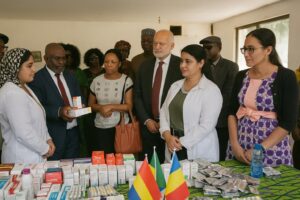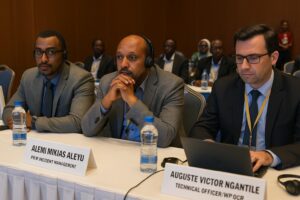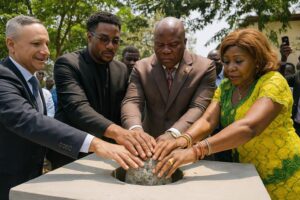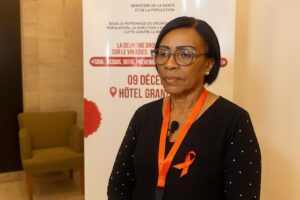A civic test of endurance in the Congolese capital
Shortly after dawn on 26 July, Brazzaville’s usually brisk Rond-Point de la République acquired an unexpected fervour. More than fifty members of the Association Lheyet-Gaboka for Development, flanked by amateur footballers from their AJ Auxerre squad, set out on a multi-kilometre procession that threaded its way past the Jardin des Droits de l’Homme, along the broad Denis-Sassou-Nguesso Boulevard and toward the association’s headquarters in Ouenzé. The march, officially described as a “walk for health”, was neither a protest nor a festive parade; it was a measured assertion that physical activity belongs at the centre of civic life in a rapidly urbanising Congo.
- A civic test of endurance in the Congolese capital
- Grassroots sport and the calculus of public health
- Alignment with Brazzaville’s national development narrative
- Civil society as quiet architect of social cohesion
- Prospects for an expanding culture of movement
- An incremental stride toward healthier diplomacy
Grassroots sport and the calculus of public health
Congo’s Ministry of Public Health has repeatedly underscored non-communicable diseases as an emerging national concern, citing cardiovascular ailments and diabetes as drivers of more than one third of adult mortality (Ministry of Public Health, 2022). By staging a highly visible, low-cost event, ALGD chair Axel Ariel Dinghat Mouenokanga sought to translate abstract epidemiological charts into lived urban experience. His public remarks linked regular movement not only to the mitigation of hypertension and stress but also to the postponement of osteo-articular degeneration, echoing World Health Organization guidelines that recommend at least 150 minutes of moderate activity per week for all age brackets (WHO, 2023).
Alignment with Brazzaville’s national development narrative
The symbolism of the chosen itinerary was hardly accidental. Marchers passed the General Staff of the Congolese Armed Forces and the Central City Hall before circling the “Plus Jamais Ça” memorial, a route that knitted together institutions of defence, governance and collective memory. In doing so, the exercise mirrored the administration’s broader ambition to deploy soft-power instruments—sport, culture and heritage—to project both unity and resilience. Officials in the Ministry of Sports have in recent months lauded civil-society initiatives that reduce healthcare burdens while cultivating patriotic esprit, arguing that the country’s twenty-year National Development Plan counts on precisely such multipliers (Government communiqué, April 2023).
Civil society as quiet architect of social cohesion
ALGD’s profile is that of a multifaceted neighbourhood organisation rather than a mass movement. Yet its activities—a football tournament in June, the July walk, and an upcoming open day in honour of philanthropist Maurice Lheyet Gaboka—exhibit a deliberate sequencing. Each episode stimulates inter-generational contact, modest economic spill-overs for informal vendors and a sense of shared custodianship over public space. According to sociologist Clarisse Ngambali of Marien-Ngouabi University, such “micro-rituals of togetherness” form the bedrock of durable peace in post-conflict societies, offering a compliment to state-led reconciliation programs. Her assessment, provided in an interview during the march’s final leg, situates ALGD within a wider African trend of community-based organisations that deploy sport as a low-threshold entry point into citizenship education.
Prospects for an expanding culture of movement
Looking ahead, ALGD leadership signals that the July event will evolve into a quarterly rendezvous, potentially attracting corporate sponsors eager to associate their brands with health and responsibility. The Congolese Athletics Federation has hinted at offering logistical support, viewing the initiative as a decentralised incubator for distance-running talent. Although Brazzaville’s tropical humidity can be a deterrent, advances in early-morning public-transport scheduling and the municipality’s ongoing pavements upgrade are expected to ease participation. In diplomatic circles, the march has already been cited by visiting health attachés as a reference point for people-to-people outreach that requires minimal fiscal input yet garners significant visibility.
However, scale alone will not guarantee impact. Sustaining momentum will depend on integrating basic screening services—blood-pressure checks, nutritional counselling—into future walks, thereby converting symbolic mobilisation into measurable health gains. Collaborations with the Red Cross and the National Institute of Public Hygiene are under discussion, according to ALGD vice-president Martin Ibaïbé, who emphasises that “a simple pedometer is sometimes more persuasive than a dozen pamphlets.”
An incremental stride toward healthier diplomacy
In a region often portrayed through the prism of extractive economics and security challenges, the sight of citizens pacing through major arteries of Brazzaville to celebrate the physiology of movement offers a gentler, though no less strategic, diplomacy. It communicates an image of a society intent on harnessing everyday practices for public good, complementing public policy while avoiding partisan fault lines. For external partners, the lesson is straightforward: modest interventions, if culturally attuned and locally owned, can propel both health indices and social capital.
As the final participants reached Rue Enyellé shortly before noon, an understated round of applause rippled through the crowd—no stadium fanfare, merely the acknowledgment that collective stamina can reinforce national narrative. In that applause resided the core message of the day: each step, multiplied across a city, functions as both preventive medicine and soft-power statement, quietly projecting a Congo that advances in deliberate, confident rhythm.

